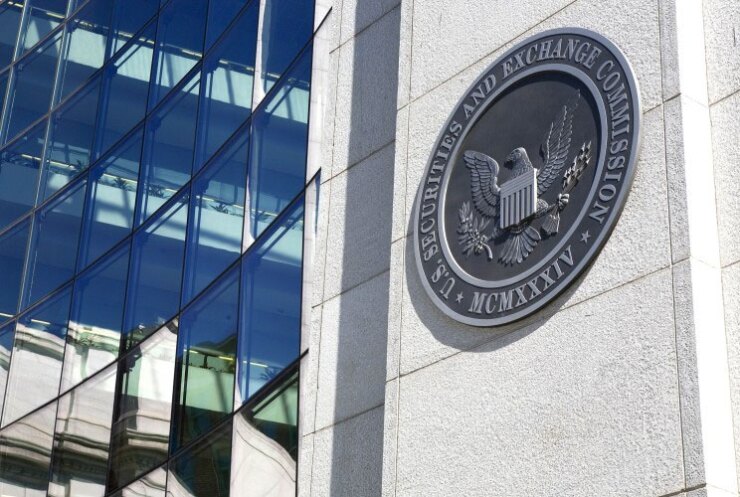The SEC’s regulatory approach chills innovation and could send crypto overseas
“Come in and talk to us.”
Gary Gensler, chairman of the Securities and Exchange Commission, invites crypto companies to stop by, sit down and be proactive about understanding the application of securities laws to their business.
But instead of providing helpful guidance to entities trying to “come in and talk,” the SEC begins investigating, issuing subpoenas, and, in case of Coinbase, threatened a lawsuit after Coinbase attempted to proactively engage with the commission. In recent months, the SEC has stepped up its “regulation by enforcement” strategy — despite publicly denying the practice – poses a threat to US leadership in the global race to capitalize on the digital asset economy.

Two recent actions illustrate the SEC’s hostile approach. In July, the SEC filed a enforcement action against a former Coinbase employee and two other people for alleged insider trading. And in a more recent move, the SEC is now apparently investigating whether Coinbase allows trading of unregistered securities on its platform.
Aside from the focus on Coinbase in particular, both actions illustrate the SEC’s approach to regulating digital assets through enforcement rather than through well-informed rulemaking or guidance where the American people have a say. Indeed, the industry is forced to manage compliance by reading between the lines of SEC enforcement documents, whether these are complaints filed in court or settlement agreements posted on the website. These are not the actions of a pro-innovation agency cultivating good relations with an industry it supposedly wants to “come in and talk to.”
As cryptocurrencies’ widespread adoption and prominence continue to grow, there is broad consensus among policymakers and industry players alike that clear, appropriate regulation is long overdue. Leading figures in the crypto ecosystem have long called for a better-defined regulatory framework to guide their work, but the recent approach by SEC leadership poses a serious threat to domestic innovation in this space.
Instead of working with Congress and other agencies like the Commodity Futures Trading Commission to rally around a unified approach to crypto regulation, the SEC has taken the opposite approach: working to slow down the industry and stifle innovation. Even SEC Commissioner Hester Peirce expressed his opposition to the SEC increase resources and staff to focus on enforcement.
Unlike Congress, the CFTC, and the millions of people who own and use cryptocurrencies, the SEC appears to inflexibly view these assets as securities rather than commodities, while failing to provide clarity as to why. Of course, the SEC will be forced to relinquish oversight of crypto if its assets are deemed commodities, suggesting a rigid bias behind its beliefs rooted in no legitimate legal basis, but rather a tortured interpretation of a more than 70- year-old Supreme Court precedent.
What could the SEC do if it really wanted to work in concert with rather than punish the industry? First, it may provide updated guidance on the application of the Howey test, the standard for determining whether an asset constitutes an investment contract, and therefore a security. Instead of leading the conversation on acceptable securities classification standards designed for the digital asset age, the SEC has remained silent since its last guidance in April 2019, leaving entrepreneurs and developers swimming in murky waters.
This much is clear: Crypto market participants wishes to comply, but the SEC has failed in its responsibility to explain how they can do so. The SEC was established to protect investors, support efficient markets and facilitate capital formation. The agency’s approach to crypto runs counter to this mission.
Quite simple states that the “vast majority” of tokens in the crypto market are securities is nowhere near enough. The agency’s lack of clarity has made it nearly impossible to assess compliance with the federal securities laws, both harming investors and creating persistent confusion and uncertainty in the markets. The SEC’s regulation-by-enforcement approach also stifles capital formation by inhibiting innovation through the fear of enforcement.
If regulatory clarity and certainty wouldn’t support fair, orderly and efficient markets and facilitate capital formation, I don’t know what would.
And I am not alone in that view. As CFTC Commissioner Pham wrote in response to the SEC’s recent insider trading enforcement, “[m]big issues are best resolved through a transparent process that engages the public to develop appropriate policy with expert input. … Regulatory clarity comes from being out in the open, not in the dark.” If the SEC continues on this counterproductive path, the United States risks giving up our lead in technological innovation and sending this burgeoning industry overseas.
Regulation should be spurred by congressional debates and legislation—not through enforcement decisions by a lone independent agency. Fortunately, members of Congress and other policymakers have recognized the opportunity that crypto offers the United States and are working hard to craft sensible legislation that will move the technology forward. The SEC is the stickler, tied to an outdated perspective on enforcement, which, if it continues, will ensure that crypto’s future will develop somewhere other than the United States.


